This article possibly contains original research. (May 2018) (Learn how and when to remove this template message) |
Late Spring (?? Banshun) is a 1949 Japanese drama film, directed by Yasujir? Ozu and produced by the Shochiku studio. It is based on the short novel Father and Daughter (Chichi to musume) by the 20th-century novelist and critic Kazuo Hirotsu, and was adapted for the screen by Ozu and his frequent collaborator, screenwriter Kogo Noda. The film was written and shot during the Allied Powers' Occupation of Japan and was subject to the Occupation's official censorship requirements. It stars Chish? Ry?, who was featured in almost all of the director’s films, and Setsuko Hara, making her first of six appearances in Ozu’s work. It is the first installment of Ozu’s so-called “Noriko trilogy”—the others are Early Summer (Bakushu, 1951) and Tokyo Story (Tokyo Monogatari, 1953)—in each of which Hara portrays a young woman named Noriko, though the three Norikos are distinct, unrelated characters, linked primarily by their status as single women in postwar Japan.
| Late Spring | |
|---|---|
The Original Japanese Poster. | |
| Japanese | ?? |
| Hepburn | Banshun |
| Directed by | Yasujir? Ozu |
| Produced by | Takeshi Yamamoto |
| Written by | Kogo Noda Yasujir? Ozu |
| Based on | Father and Daughter by Kazuo Hirotsu |
| Starring | Chish? Ry? Setsuko Hara Haruko Sugimura |
| Music by | Senji Itô |
| Cinematography | Y?haru Atsuta |
| Edited by | Yoshiyasu Hamamura |
Production company | Shochiku |
| Distributed by | Shochiku (Japan) New Yorker Films (North America) |
Release date |
|
Running time | 108 minutes |
| Country | Japan |
| Language | Japanese |
Late Spring belongs to the type of Japanese film known as shomingeki, a genre that deals with the ordinary daily lives of working class and middle class people of modern times. The film is frequently regarded as the first in the director’s final creative period, "the major prototype of the 1950s and 1960s work." These films are characterized by, among other traits, an exclusive focus on stories about families during Japan's immediate postwar era, a tendency towards very simple plots and the use of a generally static camera.
Late Spring was released in September 1949 to critical acclaim in the Japanese press. In the following year, it was awarded the prestigious Kinema Junpo critics' award as the best Japanese production released in 1949. In 1972, the film was commercially released in the United States, again to very positive reviews. Late Spring has been referred to as the director's "most perfect" work, as "the definitive film of Ozu's master filmmaking approach and language" and has been called "one of the most perfect, most complete, and most successful studies of character ever achieved in Japanese cinema." In the 2012 version of Sight & Sound's decennial poll of "The Greatest Films of All Time", published by the British Film Institute (BFI), Late Spring appears as number 15, behind Ozu's own Tokyo Story at number 3.
Screenplay
Professor Shukichi Somiya (Chishu Ryu), a widower, has only one child, a twenty-seven-year-old unmarried daughter, Noriko (Setsuko Hara), who takes care of the household and the everyday needs—cooking, cleaning, mending, etc.—of her father. On a shopping trip to Tokyo, Noriko encounters one of her father's friends, Professor Jo Onodera (Masao Mishima), who lives in Kyoto. Noriko knows that Onodera, who had been a widower like her father, has recently remarried, and she tells him that she finds the very idea of his remarriage distasteful, even "filthy." Onodera, and later her father, tease her for having such thoughts.
Shukichi's sister, Aunt Masa (Haruko Sugimura), convinces him that it is high time his daughter got married. Noriko is friendly with her father’s assistant, Hattori (Jun Usami), and Aunt Masa suggests that her brother ask Noriko if she might be interested in Hattori. When he does bring up the subject, however, Noriko laughs: Hattori has been engaged to another young woman for quite some time.
Undaunted, Masa pressures Noriko to meet with a marriageable young man, a Tokyo University graduate named Satake who, Masa believes, bears a strong resemblance to Gary Cooper. Noriko declines, explaining that she doesn't wish to marry anyone, because to do so would leave her father alone and helpless. Masa surprises Noriko by claiming that she is also trying to arrange a match between Shukichi and Mrs. Miwa (Kuniko Miyake), an attractive young widow known to Noriko. If Masa succeeds, Noriko would have no excuse.
At a Noh performance attended by Noriko and her father, the latter smilingly greets Mrs. Miwa, which triggers Noriko's jealousy. When her father later tries to talk her into going to meet Satake, he tells her that he intends to marry Mrs. Miwa. Devastated, Noriko reluctantly decides to meet the young man and, to her surprise, has a very favorable impression of him. Under pressure from all sides, Noriko consents to the arranged marriage.
The Somiyas go on one last trip together before the wedding, visiting Kyoto. There they meet Professor Onodera and his family. Noriko changes her opinion of Onodera's remarriage when she discovers that his new wife is a nice person. While packing their luggage for the trip home, Noriko asks her father why they cannot simply stay as they are now, even if he does remarry – she cannot imagine herself any happier than living with and taking care of him. Shukichi admonishes her, saying that she must embrace the new life she will build with Satake, one in which he, Shukichi, will have no part, because "that’s the order of human life and history." Noriko asks her father’s forgiveness for her "selfishness" and agrees to go ahead with the marriage.
Noriko’s wedding day arrives. At home just before the ceremony, both Shukichi and Masa admire Noriko, who is dressed in a traditional wedding costume. Noriko thanks her father for the care he has taken of her throughout her life and leaves in a hired car for the wedding. Afterwards, Aya (Yumeji Tsukioka), a divorced friend of Noriko’s, goes with Shukichi to a bar, where he confesses that his claim that he was going to marry Mrs. Miwa was a ruse to persuade Noriko to get married herself. Aya, touched by his sacrifice, promises to visit him often. Shukichi returns home alone.
| Actor | Character name (English) | Character name (Japanese) | R?maji (Japanese order) |
|---|---|---|---|
| Chish? Ry? | Shukichi Somiya | ?? ?? | Somiya Sh?kichi |
| Setsuko Hara | Noriko Somiya | ?? ?? | Somiya Noriko |
| Yumeji Tsukioka | Aya Kitagawa | ?? ?? | Kitagawa Aya |
| Haruko Sugimura | Masa Taguchi | ?? ?? | Taguchi Masa |
| Hohi Aoki | Katsuyoshi Taguchi | ?? ?? | Taguchi Katsuyoshi |
| Jun Usami | Shuichi Hattori | ?? ?? | Hattori Sh?ichi |
| Kuniko Miyake | Akiko Miwa | ?? ?? | Miwa Akiko |
| Masao Mishima | Jo Onodera | ??? ? | Onodera J? |
| Yoshiko Tsubouchi | Kiku Onodera | ??? ?? | Onodera Kiku |
| Y?ko Katsuragi | Misako | ||
| Toyoko Takahashi | Shige | ||
| Jun Tanizaki | Seizo Hayashi | ||
| Y?ko Benisawa | a teahouse proprietress |
The Occupation censorship
Censorship problems with Late Spring
The central event of Late Spring is the marriage of the heroine to a man she has met only once through a single arranged meeting. This immediately presented a problem for the censors of the American Occupation. According to film scholar Kyoko Hirano, these officials "considered feudalistic the Japanese custom of arranged meetings for prospective marriage partners, miai, because the custom seemed to them to downgrade the importance of the individual." Hirano notes that, had this policy against showing arranged marriages onscreen been rigidly enforced, Late Spring could never have been made. In the original synopsis (which the filmmakers were required to submit to the censorship before production could be approved), Noriko’s decision to marry was presented as a collective family decision, not an individual choice, and the censors apparently rejected this.
The synopsis explained that the trip to Kyoto by father and daughter, just prior to Noriko’s marriage, occurs so she can visit her dead mother’s grave. This motivation is absent from the finished film, possibly because the censors would have interpreted such a visit as “ancestor worship,” a practice they frowned upon.
Any reference in the script to the devastation caused by the Allied bombings was removed. In the script, Shukichi remarks to Onodera’s wife in Kyoto that her city is a very nice place, unlike Tokyo, with all its ruins. The censors deleted the reference to ruins (as an implied critique of the Allies) and, in the finished film, the word “hokorippoi” (“dusty”) was substituted as a description of Tokyo.
The censors at first automatically deleted a reference in the script to the Hollywood star Gary Cooper, but then reinstated it when they realized that the comparison was to Noriko’s (unseen) suitor Satake, who is described by the female characters as attractive, and was thus flattering to the American actor.
Sometimes, the censors’ demands seemed irrational. A line about Noriko’s health having been negatively affected by "her work after being conscripted by the Navy during the war" was changed to "the forced work during the war," as if even the very mention of the Japanese Navy was somehow suspect.
At the script phase of the censorship process, the censors demanded that the character of Aunt Masa, who at one point finds a lost change purse on the ground and keeps it as a kind of good-luck charm, should be shown handing over the purse to the police. Ozu responded by turning the situation, in the finished film, into a kind of running gag in which Shukichi repeatedly (and futilely) urges his sister to turn the purse in to the police. This change has been called "a mocking kind of partial compliance with the censorship."
Ozu's alleged "subversion" of censorship
One scholar, Lars-Martin Sorensen, has claimed that Ozu's partial aim in making the film was to present an ideal of Japan at odds with that which the Occupation wanted to promote, and that he successfully subverted the censorship in order to accomplish this. "The controversial and subversive politico-historical 'message' of the film is… that the beauty of tradition, and of subjugation of individual whims to tradition and history, by far outshines the imported and imposed western trends of occupied Japan."
Watch movie Late Spring online on Amazon
Watch movie Late Spring online
Watch The Movie On PrimeMeharbani (1982) Full HD Movie Download
.jpg)
Shree Krishna Leela Full HD Movie Download

Meharbaan (1967) Full HD Movie Download
.jpg)
Prem Aggan Full HD Movie Download

Ahista Ahista (2006) Full HD Movie Download
.jpg)
Beqasoor (1981) Full HD Movie Download
.jpg)
Apne Dam Par Full HD Movie Download
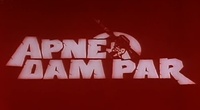
Kempegowda Full HD Movie Download

Loaded Full HD Movie Download
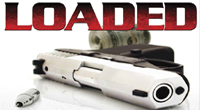
Still Green Full HD Movie Download

Jogwa Amba Baicha Full HD Movie Download
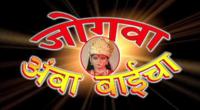
Jyoti Full HD Movie Download

En Kelvikku Enna Bathil Full HD Movie Download

Gandhinagar Rendava Veedhi Full HD Movie Download

Mee Kosam Full HD Movie Download

Dear Brother Full HD Movie Download

Karthika Deepam Full HD Movie Download

Sarangadhara Full HD Movie Download
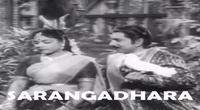
Ninaivil Nindraval Full HD Movie Download

Ayaash Full HD Movie Download
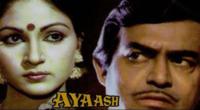
Dhoom Full HD Movie Download

Download latest Movie from bollywood
- 1> baaghi 3
- 2> THE SKY IS PINK MOVIE FULL STORY AND REVIEW
- 3> Luka Chuppi
- 4> TO ALL THE BOYS I’VE LOVED BEFORE
- 5> Kabir Singh
- 6> Street Dancer 3D
- 7> Simmba
- 8> Gone Girl
- 9> The Girl Who Lived
- 10> Ludo
- 11> DILWALE DULHANIA LE JAYENGE
- 12> GUILTY
- 13> The Godfather
- 14> Adventures of Rusty
- 15> Sooryavanshi
- 16> Satyameva Jayate 2
- 17> Thappad
- 18> Bhool Bhulaiyaa 2
- 19> KGFChapter 2
- 20> Mardaani 2
- 21> Pinjar
- 22> Shivaji maharaj
- 23> Ek Villian 2
- 24> Hungama 2
- 25> Divergent
- 26> Mumbai Saga
- 27> The Internship
- 28> HIT (telugu)
- 29> Panga
- 30> The perfect date
- 31> 16 December
- 32> Gopala Gopala (Telugu)
- 33> Brahmastra
- 34> Gangubai Kathiawadi
- 35> Manmadhudu
- 36> Nenu local
- 37> Mahanati
- 38> Shatamanam bavathi
- 39> Lagaan
- 40> After
- 41> MOM
- 42> Shamshera
- 43> Raguvaran BTech
- 44> Khakee
- 45> The villain
- 46> OM
- 47> Mr. perfect
- 48> Bueatifull mind
- 49> Hichki
- 50> Gabbar Singh
- 51> Jogi
- 52> Before Sunrise
- 53> Before Sunset
- 54> Before Midnight
- 55> The Big Bull
- 56> Top Gun: Maverick
- 57> The Purge
- 58> The Sky is Pink
- 59> Laxmmi Bomb
- 60> Sadak 2
- 61> Sufna
- 62> Prithviraj
- 63> PK
- 64> Coolie No 1(2020)
- 65> Black Widow
- 66> Dear Zindagi
- 67> Dil Bechara
- 68> PHIR HERA PHERI
- 69> WAR
- 70> Dostana
- 71> RRR: Roudram Ranam Rudhiram
- 72> Maidan
- 73> Dabbang 3
- 74> Chhalaang
- 75> life as we know it
- 76> SherShaah
- 77> Sandeep Aur Pinky Faraar
- 78> Event Horizon
- 79> 83
- 80> Radhe: Your Most Wanted Bhai
- 81> Gunjan Saxena: The Kargil Girl
- 82> Mr India
- 83> Vivah
- 84> Anokha Bandhan
- 85> Ghost
- 86> Bhoot: Part One - The Haunted Ship
- 87> Haseen Dilruba
- 88> Laal Singh Chaddha
- 89> Qismat
- 90> Rajput
- 91> Drive
- 92> Dil Chahta Hai
- 93> Dil Ki Baazi
- 94> Dil Ka Rishta
- 95> Teesri Manzil
- 96> Dil
- 97> Love Aaj Kal
- 98> Khaali Peeli
- 99> Bunty Aur Babli 2
- 100> Atrangi Re
- 101> Gulabo Sitabo
- 102> Jodi
- 103> Suraj Pe Mangal Bhari
- 104> Deewana
- 105> Attack
- 106> Sardar Udham Singh
- 107> Toofan
- 108> THE LOVEBIRDS
- 109> Jersey
- 110> Ginny Weds Sunny
- 111> Thalaivi
- 112> Shiddat
- 113> Angels vs Zombies
- 114> Koi Mil Gya
- 115> Thank God
- 116> Bhuj: The Pride of India
- 117> Hum Aapke Hain Kaun
- 118> The Platform
- 119> Bird Box
- 120> Roohi Afzana
- 121> Torbaaz
- 122> Nikamma
- 123> World War Z
- 124> Extraction
- 125> Train to Busan
- 126> Life of Pi
- 127> SHAADI MEIN JROOR AANA
- 128> Himmat Aur Mehnat
- 129> To All The Boys: P.S. I Still Love You
- 130> Mimi
- 131> Good Newwz
- 132> Shubh Mangal Zyada Saavdhan
- 133> Raabta
- 134> Harry Potter and the Philosopher's Stone
- 135> Harry Potter and the Chamber of Secrets
- 136> Chhapaak
- 137> War of the Worlds
- 138> Harry Potter and the Prisoner of Azkaban
- 139> Harry Potter and the Goblet of Fire
- 140> MURDER MYSTERY
- 141> Shakuntala Devi
- 142> Bachchan Pandey
- 143> Jayeshbhai Jordar
- 144> Sheer Qorma
- 145> Saina
- 146> 'O' Pushpa I hate tears
- 147> Kedarnath
- 148> MS Dhoni The Untold Story
- 149> Chhichhore
- 150> Badhaai Ho
- 151> Unstoppable
- 152> Oz the Great And Powerful
- 153> The Girl on the Train
- 154> Haathi Mere Saathi 2020
- 155> The Conjuring: The Devil Made Me Do It
- 156> Gandhi Se Pehle Gandhi
- 157> The Song of Scorpions
- 158> Srimanthudu
- 159> Hello Guru Prema Kosame
- 160> Beauty and The Beast
- 161> Black Panther
- 162> Charlie and the Chocolate Factory
- 163> Bole Chudiyan
- 164> Fidaa
- 165> Duvvada Jagannadham
- 166> Bruce Lee: The Fighter
- 167> Hyper
- 168> Yaara
- 169> Red (2020)
- 170> Shivam
- 171> That Is Mahalakshmi
- 172> Nishabdham
- 173> Aashram 2020 web series
- 174> Laxmii
- 175> Mismatched
- 176> STUDENT OF THE YEAR 2
- 177> NAIL POLISH
- 178> Ramprasad Ki Tehrvi
- 179> KAAGAZ
- 180> 12 o Clock
- 181> The Power
- 182> bolo hau
- 183> Tribhanga
- 184> JAMUN
- 185> Madam Chief Minister
- 186> Maasaab
- 187> Aadhaar
- 188> Tanhaji
- 189> Bhaagi 3
- 190> Bhootnath
- 191> MALANG
- 192> Jai Mummy Di
- 193> Haathi Mere Saathi 2021
- 194> Shakeela
- 195> Unpaused
- 196> Annayya
- 197> Vamsoddharakudu
- 198> Mrugaraju
- 199> Narasimha Naidu
- 200> Sankranti
- 201> Manasu Maata Vinadhu
- 202> Anjaane
- 203> Apaharan
- 204> Bachke Rehna Re Baba
- 205> Bewafaa
- 206> Roohi
- 207> Radhe
- 208> Zindagi Khoobsoorat Hai
- 209> Yeh Mohabbat Hai
- 210> Yeh Kya Ho Raha Hai?
- 211> The Tomorrow War
- 212> DehradunDiary
- 213> Meri Shaadi Karaoo
- 214> Matruu Ki Bijlee Ka Mandola
- 215> No One Killed Jesica
- 216> Aag Ka Goola
- 217> Eight Million Dollars
- 218> Three Hundred
- 219> Cats and Dog
- 220> Decoy
- 221> Gold Rush
- 222> You Have Got Mail
- 223> Final Destination three
- 224> Tofan
- 225> Jungle
Request for Download movie Late Spring
- Bollywood movies
- Latest Bollywood movies
- Download all bengali movies
- Download all bhojpuri movies
- Download all english movies
- Download all gujarati movies
- Download all hindi movies
- Download all kannada movies
- Download all malayalam movies
- Download all marathi movies
- Download all oriya movies
- Download all punjabi movies
- Download all tamil movies
- Download all telugu movies
- Bollywood action movies
- Bollywood adventure movies
- Bollywood animation movies
- Bollywood classical movies
- Bollywood comedy movies
- Bollywood crime movies
- Bollywood devotional movies
- Bollywood documentary movies
- Bollywood drama movies
- Bollywood family movies
- Bollywood fantasy movies
- Bollywood historical movies
- Bollywood history movies
- Bollywood horror movies
- Bollywood musical movies
- Bollywood mystery movies
- Bollywood mythological movies
- Bollywood patriotic movies
- Bollywood romance movies
- Bollywood romantic movies
- Bollywood sci-fi movies
- Bollywood social movies
- Bollywood spiritual movies
- Bollywood sports movies
- Bollywood suspense movies
- Bollywood thriller movies
- Bollywood war movies
- Hot actress list
- Hot gujarati actress list
- Hot tamil actress list
- Hot bhojpuri actress list
- Hot assam actress list
- Hot bihari actress list
- Hot jammu and kashmir actress list
- Hot gujarati actress list
- Hot haryana actress list
- Hot konkani actress list
- Hot marathi actress list
- Hot odia actress list
- Hot punjabi actress list
- Hot rajasthani actress list
- Hot kannada actress list
- Hot malayalam actress list
- Hot telugu actress list
- Hot tulu actress list
- Hot Actress list from Indian city
- Hot actress list from ahmedabad
- Hot actress list from alappuzha
- Hot actress list from bangalore
- Hot actress list from bangalore
- Hot actress list from bhopal
- Hot actress list from chandigarh
- Hot actress list from chennai
- Hot actress list from guwahati
- Hot actress list from hyderabad, india
- Hot actress list from indore
- Hot actress list from jaipur
- Hot actress list from kannur
- Hot actress list from kochi
- Hot actress list from kolkata
- Hot actress list from kollam
- Hot actress list from kottayam
- Hot actress list from kozhikode
- Hot actress list from lucknow
- Hot actress list from madurai
- Hot actress list from mangalore
- Hot actress list from mumbai
- Hot actress list from mysore
- Hot actress list from new delhi
- Hot actress list from patna
- Hot actress list from pune
- Hot actress list from thiruvananthapuram
- Hot actress list from thrissur
- Hot actress list from tiruchirappalli
- Hot actress list from vijayawada
- Hot actress list from visakhapatnam
- All Bollywood Movies
- Bollywood Celeb
- >Art Director
- >Audiography
- >Background Music
- >Banner
- >Choreographer
- >Cinematographer
- >Costume Designer
- >Dialogue Writer
- >Director
- >Distributor
- >Editor
- >Executive Producer
- >Hair Stylist
- >Lyricist
- >Music Director
- >Photographer
- >Playback Singers
- >Presenter
- >Producer
- >Production Company
- >Production Designer
- >Screenplay
- >Singer
- >Sound
- >Actor
- >Story Writer
- >Studio
- >Video Director
- >Miscellaneous
- >Publicity (pro)
- >Web Creator
- >Production Labs
- >Publicity Design
- >Publicity Stills
- >Writer
- >Miscellaneous Artists
- >Visual Effects
- >Reporter
- >Music Company
- >Shooting Studios
- >Picturised On
- >Line Producer
- >Co Producer
- >Asst Director
- >Casting Director
- >Cinematography
- >Choreography
- >Dialouge
- >Editing
- >Lyrics
- >Music
- >Story
- >Playback Singer Female
- >Playback Singer Male
- >Actor In A Comic Role (male/female)
- >Child Artiste
- >Ensemble Cast
- >Actor Popular Choice (male)
- >Actor Popular Choice (female)
- >Sa Re Ga Ma Pa Song Of The Year
- >Actor In Supporting Role
- >Actress In Supporting Role
- >Actor In Leading Role
- >Art Direction
- >Actress In Leading Role
- >Sound Recording
- >Costume Design
- >Special Effects
- >Action
- >Actor In A Negative Role
- >Lifetime Achievement Award
- >Cinematic Exellence (director)
- >Cinematic Exellence (male)
- >Cinematic Exellence (female)
- >International Male Icon
- >International Female Icon
- >Actor In A Supporting Role (male)
- >Actor In A Supporting Role (female)
- >Actor In A Comic Role
- >Playback Singer (male)
- >Playback Singer (female)
- >Most Promising Debut (female)
- >Most Promising Debut (male)
- >Most Promising Director
- >Sound Design
- >Lifetime Jodi
- >Marketed Film
- >Jury Award For Best Actor
- >Jury Award For Best Actress
- >Jury Award For Best Film
- >Jury Award For Best Director
- >Playback Singer(male)
- >Lifetime Acheivement Award (male)
- >Excellence Award
- >Jodi Award
- >Performer Of The Year
- >Presented By
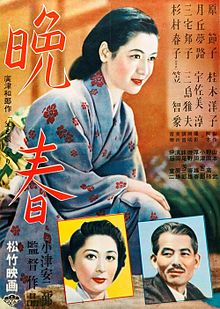 Story of movie Late Spring :
Story of movie Late Spring : 